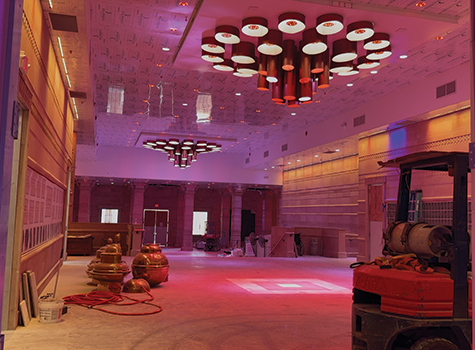By Jennifer Allen

“And even though people like to furrow their brow like they suspect you’re not being honest about yourself, the truth is that they worry that you’re not serving their idea of you.”
~ Ahmir Questlove Thompson
In this world we all seem to have this vision of becoming famous. And why not? You can potentially gain a lot more wealth and visibility than the seemingly ordinary life you have now. Some seek their “15 minutes of fame” just so they can have their own Wikipedia page listing. Others instead want to share some talent they have with the rest of the world. Some others still do not even seek fame, but get thrust into it by the most intriguing circumstances of charming serendipity.
In the “olden days” all you had to do to gain fame was do something so extraordinary that stories would be spoken (and later written) about you. Once movies and television became more common, the goal was often to “be seen” not only while performing, but also to shed a certain public image when you were out in the public eye. Often this image reflected the social accepted behaviors of the time. Of course just about every celebrity had at least one dark skeleton he or she had to desperately hide in order to maintain their career.
In this 21st century world of social media, the “fame game” has changed the rules of how you can become and later how to maintain your status as a celebrity. With a simple touch of your phone’s camera app or myriad keyboard clicks, you can record a moment in time and then place it out there into the limitless world of the internet. Like tossing a dart onto a giant map, you are adding a small piece of yourself (or someone else) out there for potentially the whole world to see and/or experience.
The “secrets” of current celebrities are much more difficult to obfuscate when most of the people in the civilized world has a small electronic device in their pocket or bag. This same trinket can catch either a perfect or imperfect little moment or time and toss it out into that same constantly rippling pool of the web. More disturbing is that often these little moments are posted without the subject’s knowledge (at least at first).
On the flipside of this, you must understand that in order to be famous, you must have those fans who have admiration for your work. As much as we as humans say that we’re individuals, we do also have “Mob” mentality built into our psyche. We are wired to favor others who share similar enthusiasms and to shun those who do not. Our inherent fear of “the other” helped us deal with threats as a hunter-gatherer species, and this instinct has never fully dissipated.
With the social media platform now an integral part of human society, our instinct of the “other” has garnered a whole new generation of stereotypes and animosity. Celebrities of this new Big Brother setting have had to change the rules as far as being interesting enough to keep their fans entertained, but to not become so completely unusual that they could lose those same fans.
When that same celebrity seems to do something The Mob doesn’t like, they now have a faceless platform where they can share as much antagonism as possible. Sometimes this wrath comes from something as simple as this person’s race, political views, gender, sexual orientation, or religion. Other times these traits are supplemental to a project this particular celebrity was involved with. “Well she was in this film and it was crap. Of course we knew it would be because why would they put a [insert derogatory stereotype here] woman in that role?”
Some celebrities have the philosophy of “even bad press is good press” because even being caught in a bad situation still keeps them relevant and talked about. Some reality stars and social media personalities have this mindset because their brand identity is who they portray to the masses. Are they all being truly “real”? That’s very much up for debate, but I’d like to think that some of them are.
It’s always a double-edged sword when you do gain that bit of fame. Keeping that perfect balance of being “edgy” yet remaining just “normal” enough to not alienate the very same people who made you who you are is very difficult. Some celebrities are magnificent with fans no matter what environment they’re in. Others seem to want nothing to do with “those people” when they’re out in public.
Unfortunately now “those people” have a voice, and that voice can be extremely devastating. In most cases, this toxic attitude will stay on Facebook, Twitter, or YouTube through comments. In more rare situations, it can get extremely brutal. More and more reports of stalking, threatening emails, and potential home invasions are just some of the ways obsessed fans have expressed their displeasure with a particular person. While not everyone is John Lennon, Selena, Gianna Versace or Abis Rizvi, the growing amount of fans whose intent is substantially more than to post 120 characters of hate is terrifying.
I think what we all need to realize is that just because someone has gained a bit of fame doesn’t mean you have the right to attack them just because he or she has done something you don’t like. By the same token, as that same famous person it doesn’t give him or her the right to be a terrible person either.
Online bullying seems to have contributed to the increase in the amount of suicides in the past few years. That along with various forms of mental illness can be a factor in celebrity suicides. Perhaps the movie star or YouTube star has a dark past or a few other “skeletons” that are best left buried. Don’t become a part of The Mob and bring those demons forth. Be respectful, sympathetic, and remember that we all have differences, but above all else… we all have feelings.
——–
Jennifer Allen works at Saathee and is also a Podcaster, Blogger, Photographer & Graphic Artist.



